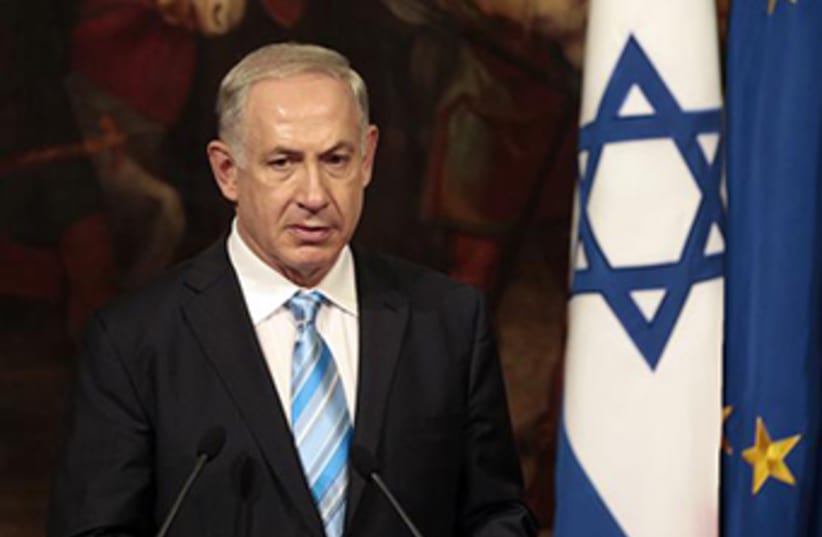Diplomatically but firmly, EU Ambassador Lars Faaborg-Andersen rejected on Wednesday Prime Minister’s Binyamin Netanyahu’s charge of a European double standard and imbalance regarding Israel.
“I don’t think that there is any argument that we are imbalanced,” the EU’s ambassador to Israel told a briefing of journalists in Jerusalem. “Any action taken that undermines the talks we are critical of.”Netanyahu slammed the EU last week, accusing it of “hypocrisy” in condemning settlement construction but not the Palestinians for incitement or continued terrorism.
His anger was sparked by an apparently coordinated move last week to summon Israel’s ambassadors in London, Paris, Rome and Madrid to protest the recent announcement of construction of 1,400 housing units in the major settlement blocs and Jerusalem neighborhoods beyond the pre-1967 lines.Calling the claim that settlements are an obstacle to a peace agreement “bogus,” Netanyahu asked when was the last time the EU countries called in the Palestinian Authority ambassadors to “complain about incitement to Israel’s destruction,” or to protest that security officers from the Palestinian Authority were participating in terror attacks against innocent Israelis.“I think it’s time stop the hypocrisy and inject some fairness in the discussion,” he said, adding that the EU imbalance does not promote peace but actually pushes it further away, because it tells the Palestinians that they can engage in incitement and terror and not be held accountable.Faaborg-Andersen, a former Danish diplomat who presented his credentials to President Shimon Peres earlier this month, said the EU is in a “very continuous and close dialogue with the Palestinians and Israelis, and we are passing on messages to both parties. I don’t see any basis to the allegations that we are being one-sided and not evenhanded on these issues.”The EU envoy said that the Europeans are “very critical of anything on the ground that can hurt the process,” including rockets from Gaza, incitement, house demolitions, and further construction in the settlements.The ambassador said that on several occasions he has personally condemned Palestinian violence and put similar condemnations issued by EU foreign policy chief Catherin Ashton on his website.Faaborg-Andersen said that the EU was keen on expanding its relations with Israel “within the 1967 lines.” But, he added, if Israel continues with settlement expansion, and there was no result from the current round of negotiations, “I’m afraid that what will transpire is a situation where Israel will find itself increasingly isolated.”He said this “isolation” would likely come not from decisions made at a governmental level but rather by a myriad of private economic actions, such as divestment by pension funds and consumers who will not buy Israeli products. He said that the EU had no view on private companies that have decided to cut ties with Israeli companies. His main concern, he said, was that no EU money should be spent in the settlements over the Green Line.Faaborg-Andersen said that the EU had made it clear to both parties that “there will be a price to pay if the negotiations falter.”Asked what price would be extracted from the Palestinians, he said that they have been told clearly that “the option of just sitting around waiting is not an option, and there is no plan B if talks fail that the EU would encourage.”When questioned about the impact the failure of the negotiations would have on the average Israeli citizen vis-à-vis the EU, he said he did not want to “sit and paint horror scenarios,” but that “you can imagine yourself what can happen.Instead of going forward, there is a risk our relations could go backward.”The ambassador also said the EU has not pronounced a position on Israel’s demand that the Palestinians recognize it as a Jewish state.The reason, he said, was because the EU was not sure about the implications of this on other final-status issues, and therefore it is an issue to be discussed between the parties.